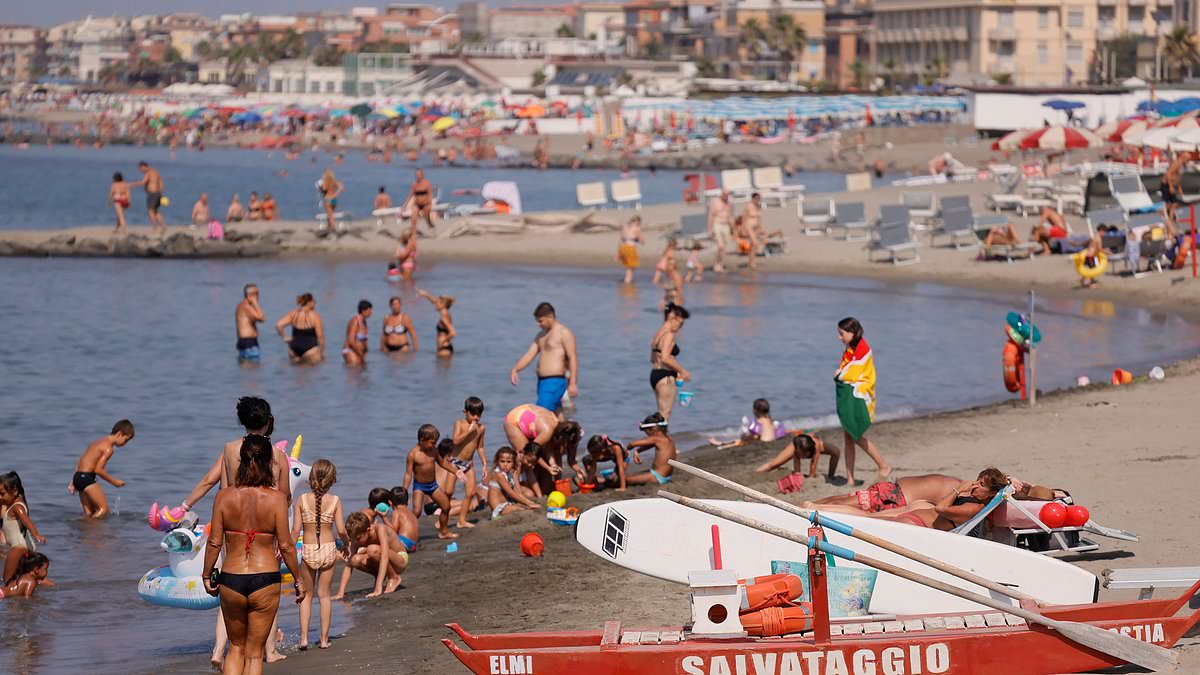
Italy’s breathtaking coastline has long been a symbol of beauty, vitality, and cultural heritage. However, a growing controversy surrounding private beach clubs is threatening this idyllic image. Locals are voicing their frustrations as more stretches of the shore are becoming inaccessible, fueling protests and debates across the country.
The Rise of Private Beach Clubs in Italy
For decades, Italians have enjoyed the comfort and convenience of private beach clubs, where they can rent sunbeds, umbrellas, and enjoy exclusive beachside amenities. However, these conveniences have come at a cost. In key regions such as Liguria, Emilia-Romagna, and Campania, research shows that nearly 70% of beaches are under private control, leaving only a fraction freely accessible to the public. According to La Stampa, this trend has led to what they call a ‘silent expropriation’ of Italy’s coasts.
Soaring Costs and Public Backlash
The rising costs of a day at the beach have only intensified public dissatisfaction. Consumer group Altroconsumo reports that beach rental fees have increased by 17% over the past four years. In hotspots like Gallipoli, the price for a pair of sunbeds and an umbrella can climb to an astonishing €90 per day. Beyond the escalating costs, reports also highlight cases of staff behavior adding to the dissatisfaction, as many visitors have complained about rude service.
Some activists, such as Matteo Hallissey of the +Europa party, have taken to protesting on-site. Hallissey himself was pushed to the ground recently while attempting to protest against restricted access at a private beach near Lavinio, just south of Rome. “People are sick of private establishments slowly taking over,” he stated. “The space available for free enjoyment is shrinking, and many families simply can’t afford the rising fees.”
Authorities Take Action
In response to public outrage, several local governments have begun to push back against illegal practices by private operators. For example, in Sicily, authorities have ordered the removal of unauthorized turnstiles barring public access to beaches such as Mondello. Similarly, in Basilicata, police have seized hundreds of loungers and umbrellas improperly placed on public land.
One of the most outspoken advocates for reclaiming Italy’s coastlines is Mayor Josi Della Ragione of Bacoli, near Naples. His campaign has successfully returned over 10,000 square meters of sand to public use by demolishing illegal fences and walls erected by private operators. “For too long, the coast has been treated as private property. I won’t give up this fight,” he said.
Legal and Political Developments
Rome has faced pressure from the European Court of Justice, which ruled that the automatic renewal of state-owned beach concessions—many of which are passed down as inheritance—is illegal. The government has been directed to open competitive tenders for some 28,000 beach licenses by 2027. While this reform aims to break the hereditary grip on beach concessions, it remains a polarizing issue, with some arguing that economic hardships could further alienate vulnerable families from enjoying the coast.
How Travelers Can Support Sustainable Beach Access
As visitors planning your next Italian escape, you can support sustainable tourism by choosing free public beaches or opting for eco-friendly beach clubs that prioritize environmental preservation. Travelers should also be aware of their rights—Italian law guarantees public access to the coastline up to the water’s edge.
To make the most of your beach day, consider using sunscreen that is kind to the environment, like the Supergoop! Unseen Sunscreen SPF 40. This popular, non-greasy sunscreen is reef-safe, ensuring protection for your skin and the ocean’s delicate ecosystems.
Italy’s beaches are a treasure for locals and tourists alike, but safeguarding this natural beauty requires awareness, advocacy, and action. By supporting measures to preserve public access, you can help protect one of Italy’s most cherished resources.






